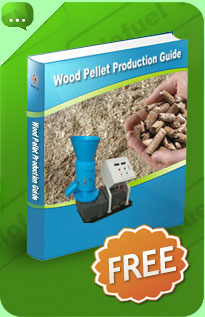Pellet Makers
Pellet makers can also be called pellet press, pellet mill, pellet machine etc. it is such a piece of equipment that used make various biomass materials into pellets form for feed, bedding or fuel uses. Pellet makers were first produced to make animal feed pellets from straws and grasses, but gradually people are becoming more and more interested in making wood pellets for heating purpose. However, compared to straws and grasses, wood has a much higher density and stronger fibres than these materials. They are much easier to process and have a lower density, as a result if you want to produce wood pellets, more torque or power is required. Besides, sufficient temperature and pressure are also needed in order to melt the materials natural lignin in wood, so the original pellet machine must be changed in order to produce good wood pellets. Pellet mills usually can process pellets whose diameter is between 4mm-10mm. In addition, the length can be adjustable base on clients demand and the best moisture content for pelletizing is between 12%-15%.
Homemade Pellet Press
Along with the fast development of wood pellets industry, recently wood pellet press becomes more and more popular in the world, Pellet presses or pellet makers are pelletizing equipment that used to produce various biomass wood pellets. Pellet presses can be grouped into two main types, they are flat die pellet maker and the ring die pellet maker. Homemade pellet press is also known as small pellet maker or flat die pellet maker. This type of homemade pellet press has the advantages of low consumption, low cost and high efficiency; etc. The flat die pellet press or maker is your better choice for residential and small farm uses with small capacity. And it is one kind of energy source machines that can process wood sawdust, wood lump, straw, and other agro-waste resource biomass materials.
Pellet Press Dies
There are actually two designs of dies of the pellet mill – flat die and ring die. Die hole sizes usually range from approximately 2 -10 mm. The thickness of the die plate helps determine the compactness and stability of the pellet. Pellet dies vary in thickness up to approximately 100 mm thick. Pellet mill dies are usually manufactured from metal alloys, stainless steel or high chrome. Pressures in the die can reach up to 172,000 KPa (25,000 psi)

